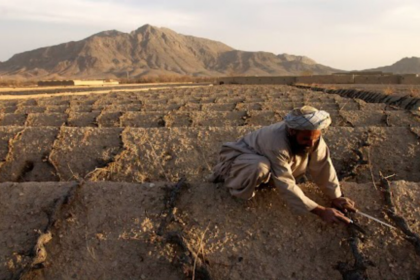RASC News Agency: Local sources in Dara-i-Suf Bala district of Samangan province have revealed that Taliban commanders are once again coercing residents to procure “weapons and military equipment” for the group. According to documents shared with the media, the Taliban have presented villagers with lists demanding the purchase of a wide array of arms, including Kalashnikov rifles, PKM machine guns, rocket launchers, pistols, night-vision scopes, and even military communication devices. Residents told the press that earlier this week, Mullah Najib Haroon, the Taliban’s intelligence chief in Samangan, personally entered the district carrying a list of sixty names. He reportedly threatened those named, declaring: “Anyone who does not already possess a weapon must sell their house or land to buy one for Taliban intelligence.” The list reportedly includes tribal elders, shopkeepers, village leaders, and even relatives of former members of the security forces.
This is not the first time civilians have been subjected to such extortion. Local sources confirm that this marks the fifth round of forced weapons collection in Dara-i-Suf Bala. In previous incidents, desperate residents faced with the threat of torture and imprisonment were compelled to sell off their farmland, liquidate their homes, or borrow heavily to pay the Taliban in cash. Others were beaten so severely that some lost their lives or were left permanently disabled. Reports indicate that the practice is not confined to Samangan. Similar accounts have emerged from other provinces and districts across Afghanistan, where dozens of families have been pressured to provide arms. In many cases, households were forced to sell their only property, while others endured brutal beatings at the hands of Taliban enforcers. Families of former soldiers and security officials have borne the harshest persecution, repeatedly targeted under the pretext of possessing hidden weapons.
Locals further accuse certain influential figures in Samangan such as Sayed Agha Hussain Hashimi and Nasim Khybershekan of collaborating with the Taliban in entrapping poor residents and facilitating the group’s extortion network. Reports from villages such as Zohra and Dehn Tor suggest that even coal mine owners have been coerced to supply arms at the Taliban’s demand. Analysts argue that this systematic coercion reveals the true face of Taliban “security policy.” Far from being a lawful effort to regulate arms possession, it functions as a brutal instrument of repression—designed to bleed local communities dry, enforce submission through fear, and transform the population into a reservoir of resources for the group’s military agenda. For many Afghans, the Taliban’s weapon demands have become yet another form of state-sanctioned plunder, pushing the already impoverished population deeper into destitution.





